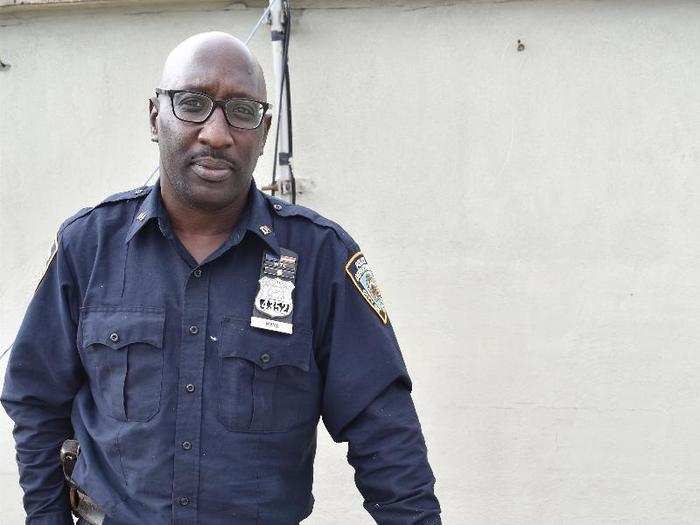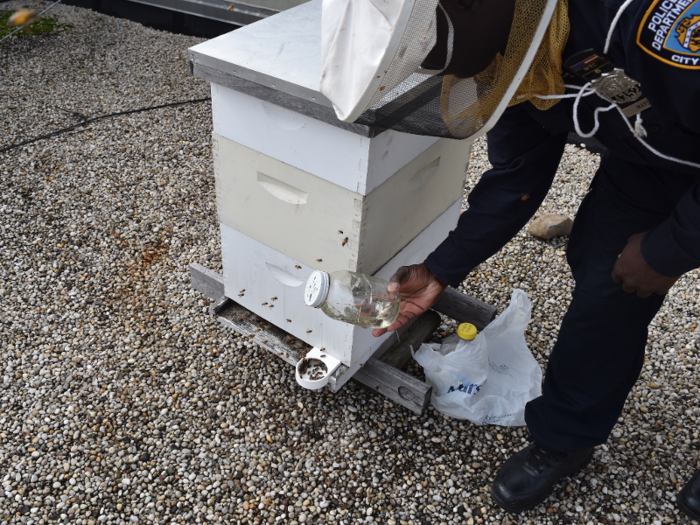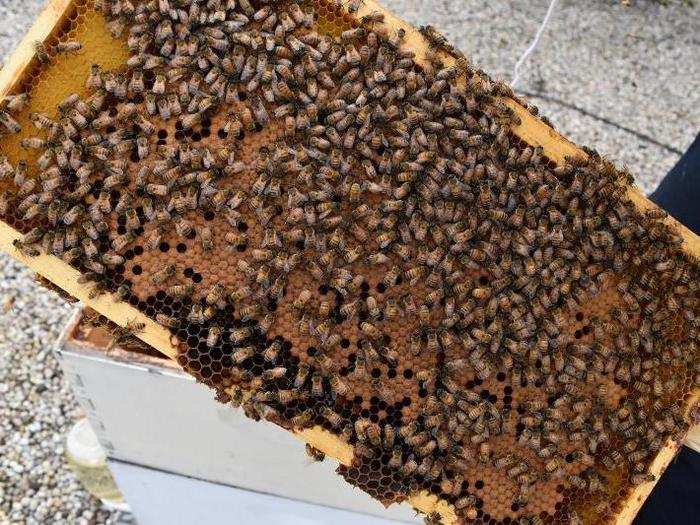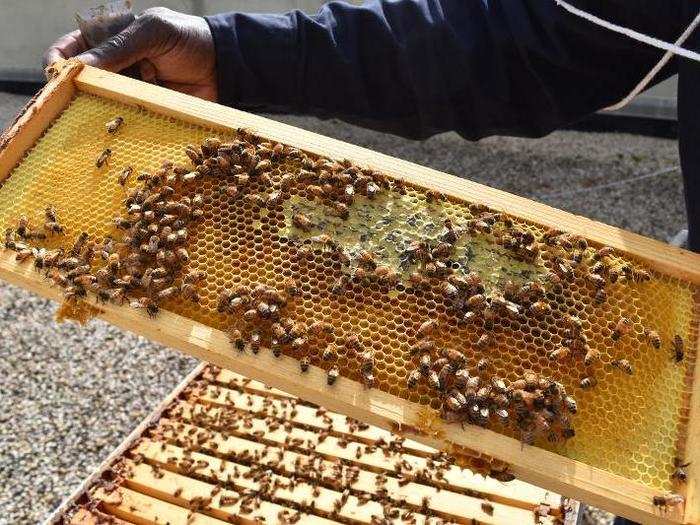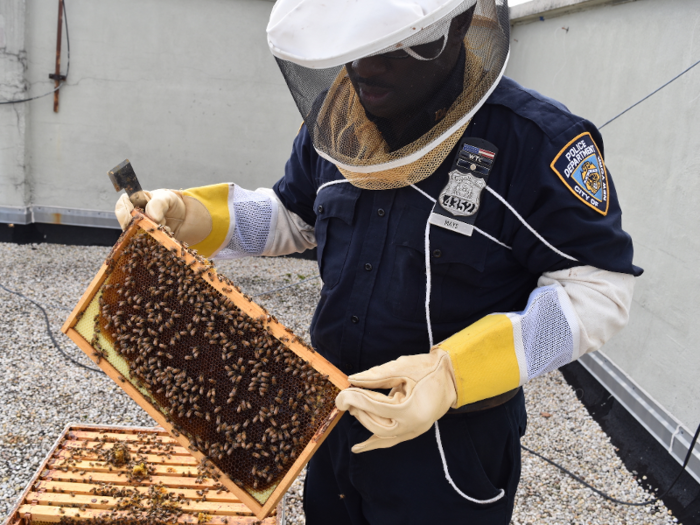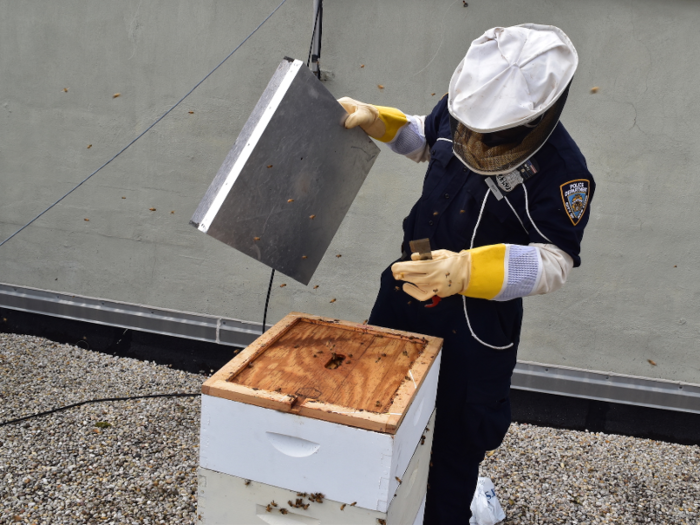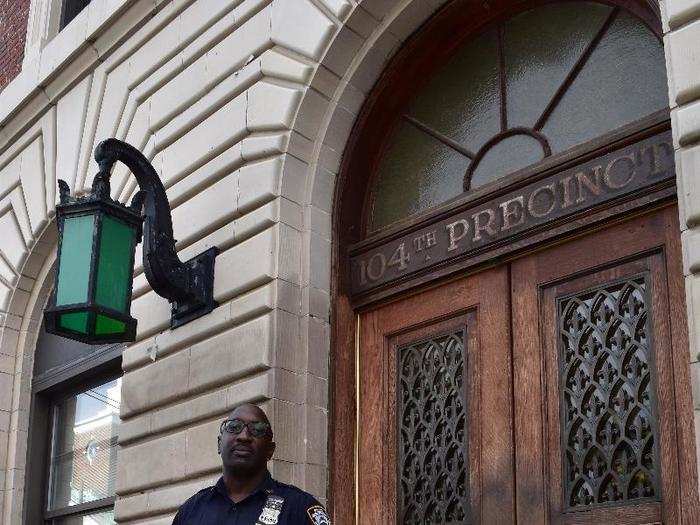Mays didn't always like working with bees. He grew up on a farm in South Carolina and knew plenty of people who raised honeybees, but he said he wanted "nothing to do with it" and thought honey was gross.
Mays even intentionally kicked over a honey bee colony once, while horsing around with his brother, when he was a kid.
"I felt so bad later, once I really got into beekeeping," he said.
A bee hive is a cooperative space in which everyone knows their role. Worker bees collect pollen and nectar, build the hive, and provide air conditioning, while a single queen lays eggs and releases chemicals that help guide the workers.
But Mays said one type of bee — male drone bees — are utterly "useless" for the hive.
That's true on a hyperlocal level. Drones typically mate with a queen from another nearby colony, not their own, which could be their mom.
"They get kicked out as it gets colder," Mays said. "Because they don’t do anything — they don’t sting, they don’t forage to collect pollen or nectar, or anything."
You can tell drone bees apart from other bees by their slightly fatter bodies and bigger eyes. If they manage to successfully mate with a queen, they die instantly, since their stomach and genitals are ripped right off in the process.
Mays said he finds it therapeutic to watch the bees calmly working. Enclosed in my safety net, it did seem meditative.
Working with the bees helps him relieve stress, Mays added.
"You feel the vibration on your hands," he said. "It's just soothing to watch them work and not fight among each other."
There are already some seasonal changes happening in the colony. Mays can tell the bees' diet has shifted, for example.
They've started relying on a local Japanese Knotweed bush for sustenance, he said. And now they're producing "a dark colored honey, which is very good."
Across New York City, nearly 300 rooftop, backyard, and neighborhood beehives are registered with the Department of Health. But nationwide, bee populations are dwindling.
Mays is quick to defend honeybees, especially when reminded of the swarm that caused a stir over the summer in Times Square. "It's not a crime," he said of their swarming behavior.
Swarming is just part of life when you're a bee looking for a new home.

